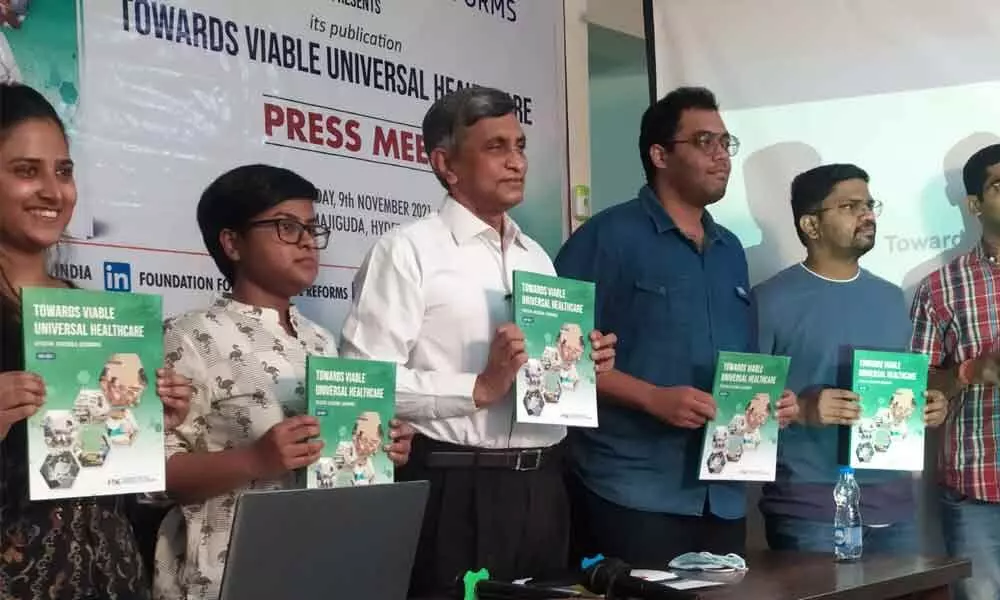Live
- Bhadrachalam’s Godavari Banks to Host Unique Campsites
- True happiness
- Cricket: A metaphor for life
- No new twist over power-sharing: Deputy CM Shivakumar
- BJP faces internal strife amid leadership challenges
- Bejan Daruwalla’s horoscope
- Brain-inspired tech Neuromorphic Computing gaining traction now
- ‘The Mehta Boys’ opens Indian Film Festival in Berlin
- Revanth Reddy Unveils Former Governor Vidyasagar Rao's Book ‘UNIKA’ at Hyderabad
- Embracing the Wisdom of Ancient Traditions: A Global Perspective
Just In
Lok Satta chief JP moots health assurance for all citizens


Foundation for Democratic Reforms releases 'Towards Viable Universal Health care' policy
Urging the State and Central governments to focus on enhancing infrastructure in the health sector for providing quality treatment to the citizens, the Foundation for Democratic Reforms released ‘Towards Viable Universal Healthcare’ policy here on Tuesday.
Hyderabad: Urging the State and Central governments to focus on enhancing infrastructure in the health sector for providing quality treatment to the citizens, the Foundation for Democratic Reforms released 'Towards Viable Universal Healthcare' policy here on Tuesday.
Releasing the policy, Dr Jayaprakash Narayan, general secretary of the foundation and president of Lok Satta explained the proposed reforms and the changes to be brought in the country. Appreciating the governments of Andhra Pradesh and Telangana for doing their best in the health sector by implementing Arogyasri, he called for enhanced infrastructure and expenditure to provide quality medical services in both States. He said the proposed model was a modest attempt to ensure effective, accessible and affordable healthcare service for all,
According to Dr Narayan, "the key elements of the model are the continuum of care through a publicly-funded family physician-led primary care system with choice and competition for all outpatient care. Limiting secondary and tertiary-level hospital services to inpatient care, upon referral. It envisages expanding the scope of Ayushman Bharat and other public-funded health insurance to cover all secondary care procedures for all citizens, whilst removing tertiary care services from its coverage; making district and public teaching hospitals the mainstay for quality, cost-effective tertiary care in the country. While the public exchequer will largely bear the cost of operationalising the model, private players will have a key role in delivering services ensuring efficiency as well as cost-effectiveness. It envisages public-private partnerships and innovative modes of financing.
He explained that the additional cost of implementation of the model will be about Rs 85,000 crores a year across the country- about 0.4 per cent of the GDP. Even with this additional expenditure, the total government expenditure across the country will be only 1.6 per cent, the lowest among all major countries.
In Telangana and AP, the additional cost will be about Rs 1,900 crores and Rs 2,600 crore respectively' JP stated. The research team of the foundation consists of V Keshav Reddy, Shweta Chandar, Sruti Paturi, Sumedha Kuraparthy, Vriti Bansal, Aishwarya Rao, VNSS Chaitanya, Sai Naga Raghuram, Sai Srujana.

© 2025 Hyderabad Media House Limited/The Hans India. All rights reserved. Powered by hocalwire.com






